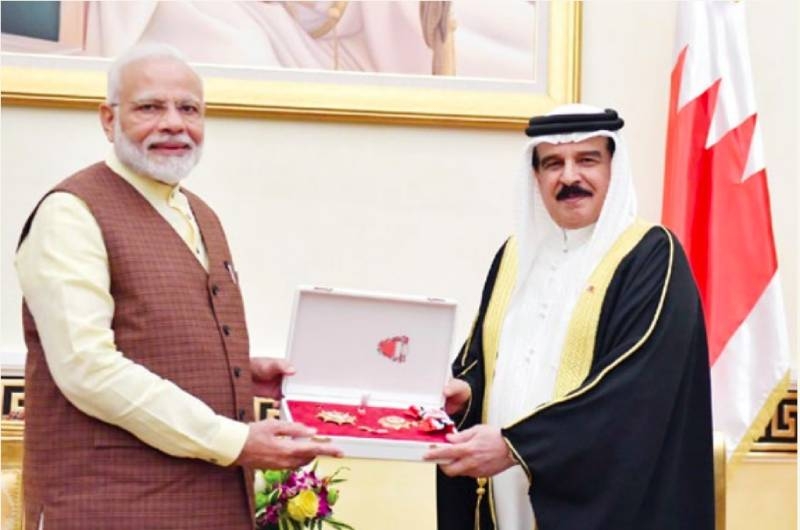A new era in bilateral relations
His Majesty King Hamad bin Isa Al Khalifa yesterday received Indian Prime Minister Narendra Modi at Gudaibiya Palace, in the presence of His Royal Highness Prime Minister Prince Khalifa bin Salman Al Khalifa and His Royal Highness Prince Salman bin Hamad Al Khalifa, the Crown Prince, Deputy Supreme Commander and First Deputy Premier.
Mr. Modi is on a two-day visit to the Kingdom. HM, the King then held a meeting with Prime Minister Modi, during which the two sides reviewed deep-rooted historic relations of friendship binding the Kingdom of Bahrain and the Republic of India. They also highlighted aspects of joint co-operation in the investment, economic, commercial, health, scientific and technological sectors, in adding to the sector of energy.
The two sides hailed steadily-growing bilateral relations, stressing resolve to pursue efforts to expand joint co-operation in vital sectors, benefit from expertise and investment opportunities and potential in both countries as part of their common strategic interests.
HM the King hailed the memorandum of understanding on the programme of cultural exchange, to strengthen the deep-rooted cultural relations, the declaration of intent in the field of space technology on the application of a memorandum of understanding for co-operation in the field of exploration and use of outer space for peaceful purposes, and a declaration of intent on the Kingdom of Bahrain’s accession to the International Solar Coalition, and a memorandum of understanding between The National Electronic Payments Network (BENEFIT) and the Indian National Payments Corporation (NPCI) to discuss co-operation and link payment systems to facilitate payments between the two countries.
HM, the King and the Indian Premier discussed regional and international issues of mutual concern, stressing both countries’ support to regional and global efforts aimed to bolster the pillars of security and stability in the region and the world.
Related Posts

